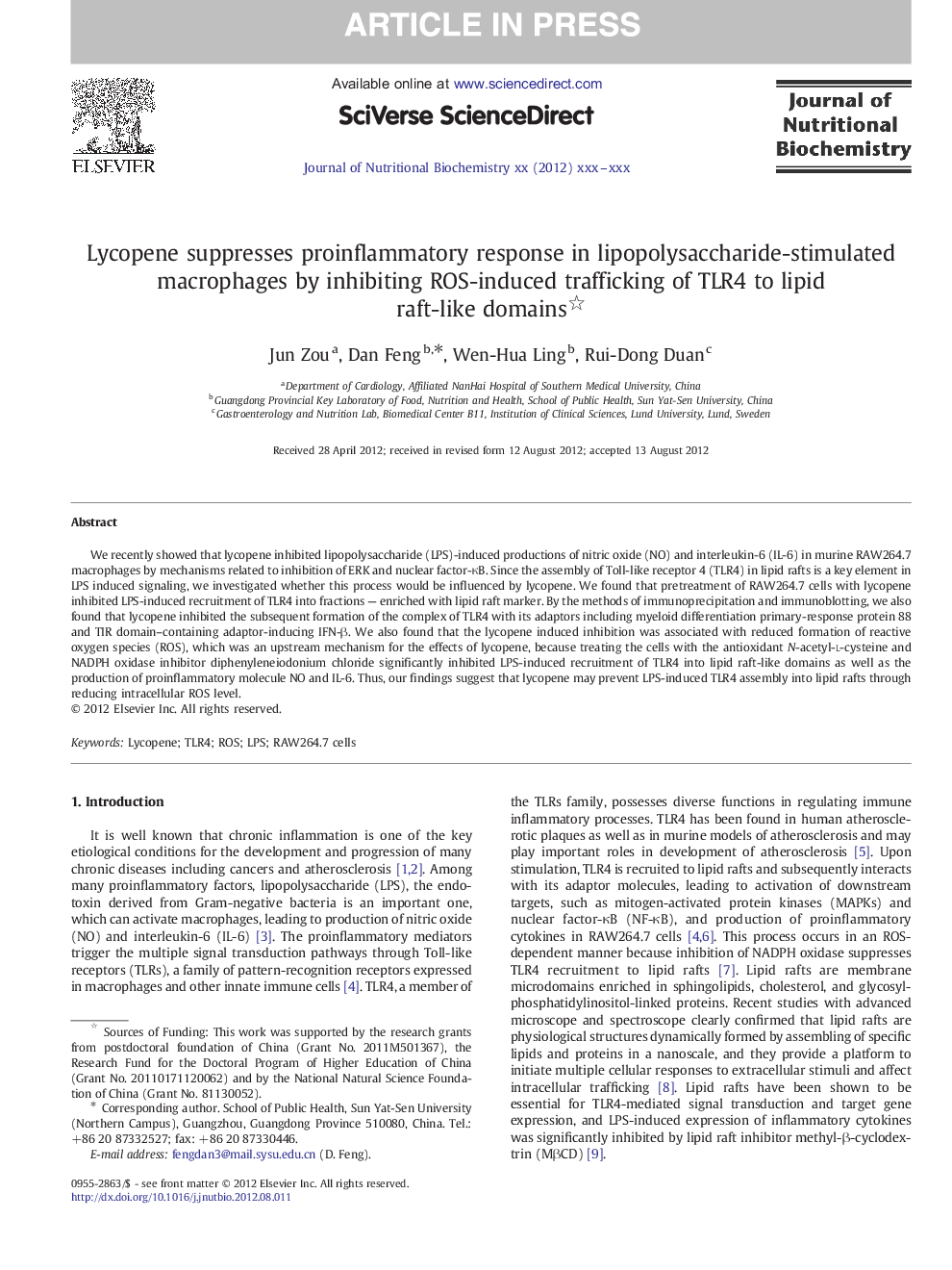| Article ID | Journal | Published Year | Pages | File Type |
|---|---|---|---|---|
| 8337445 | The Journal of Nutritional Biochemistry | 2013 | 6 Pages |
Abstract
We recently showed that lycopene inhibited lipopolysaccharide (LPS)-induced productions of nitric oxide (NO) and interleukin-6 (IL-6) in murine RAW264.7 macrophages by mechanisms related to inhibition of ERK and nuclear factor-κB. Since the assembly of Toll-like receptor 4 (TLR4) in lipid rafts is a key element in LPS induced signaling, we investigated whether this process would be influenced by lycopene. We found that pretreatment of RAW264.7 cells with lycopene inhibited LPS-induced recruitment of TLR4 into fractions - enriched with lipid raft marker. By the methods of immunoprecipitation and immunoblotting, we also found that lycopene inhibited the subsequent formation of the complex of TLR4 with its adaptors including myeloid differentiation primary-response protein 88 and TIR domain-containing adaptor-inducing IFN-β. We also found that the lycopene induced inhibition was associated with reduced formation of reactive oxygen species (ROS), which was an upstream mechanism for the effects of lycopene, because treating the cells with the antioxidant N-acetyl-l-cysteine and NADPH oxidase inhibitor diphenyleneiodonium chloride significantly inhibited LPS-induced recruitment of TLR4 into lipid raft-like domains as well as the production of proinflammatory molecule NO and IL-6. Thus, our findings suggest that lycopene may prevent LPS-induced TLR4 assembly into lipid rafts through reducing intracellular ROS level.
Keywords
Related Topics
Life Sciences
Biochemistry, Genetics and Molecular Biology
Biochemistry
Authors
Jun Zou, Dan Feng, Wen-Hua Ling, Rui-Dong Duan,
